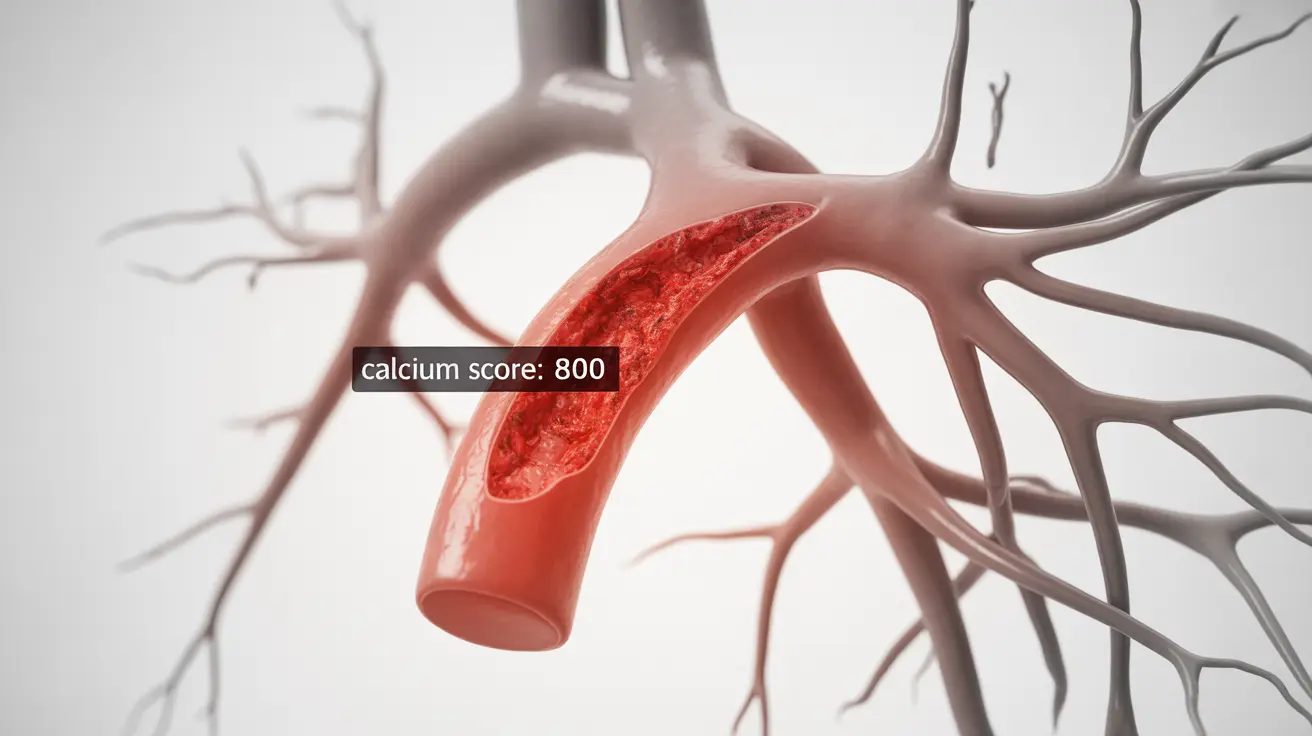A coronary calcium score of 800 represents a significant finding that requires careful attention and understanding. This score, obtained through a specialized CT scan, measures the amount of calcium buildup in your heart's arteries and serves as an important indicator of potential cardiovascular disease risk. Understanding what this number means and how to respond to it is crucial for managing your heart health effectively.
In this comprehensive guide, we'll explore what a calcium score of 800 indicates, its implications for your cardiovascular health, and the steps you can take to manage your heart disease risk factors proactively.
Understanding Calcium Score Measurements
A coronary calcium score measures the amount of calcified plaque in your heart's arteries. The scoring system typically ranges from zero to over 1000, with higher numbers indicating more extensive calcium deposits. A score of 800 falls into the very high category, suggesting substantial calcium buildup in the arterial walls.
Here's what different score ranges typically indicate:
- 0: No detectable calcium
- 1-99: Mild calcium deposits
- 100-399: Moderate calcium deposits
- 400-999: Extensive calcium deposits
- 1000+: Very extensive calcium deposits
Implications of a High Calcium Score
A calcium score of 800 indicates significant atherosclerosis, or hardening of the arteries. This finding suggests:
- Higher risk of coronary artery disease
- Increased likelihood of future cardiac events
- Presence of substantial plaque buildup
- Need for aggressive risk factor modification
Risk Assessment and Medical Management
When faced with a calcium score of 800, your healthcare provider will likely recommend:
Comprehensive Evaluation
This may include additional cardiac testing such as stress tests, blood work, and possibly coronary angiography to assess the extent of arterial narrowing.
Medication Management
Your doctor might prescribe or adjust medications to address:
- Cholesterol levels
- Blood pressure
- Blood sugar (if diabetic)
- Other cardiovascular risk factors
Taking Action: Lifestyle Modifications
While a high calcium score cannot be reversed, you can take several steps to manage your cardiovascular health:
Diet and Exercise
Implementing heart-healthy dietary changes and regular physical activity is crucial:
- Follow a Mediterranean-style diet
- Limit saturated fats and processed foods
- Engage in moderate exercise as approved by your doctor
- Maintain a healthy weight
Risk Factor Management
Focus on controlling modifiable risk factors:
- Quit smoking
- Manage stress levels
- Control blood pressure
- Maintain healthy cholesterol levels
- Manage diabetes if present
Monitoring and Follow-up
Regular medical supervision is essential with a high calcium score. Your healthcare provider will establish an appropriate monitoring schedule and may recommend periodic reassessment of your cardiovascular health.
Frequently Asked Questions
What does a high calcium heart score of 800 mean for my heart health? A calcium score of 800 indicates extensive calcified plaque in your coronary arteries, suggesting a higher risk for heart disease and cardiac events. This requires careful medical management and lifestyle modifications.
How is a coronary calcium score used to determine heart disease risk? The calcium score provides a quantitative measure of arterial calcification, which correlates with atherosclerosis severity. Higher scores indicate greater risk for future cardiovascular events.
What are some effective lifestyle changes to reduce my calcium heart score? While the calcium score itself cannot be reduced, you can help prevent further progression through regular exercise, heart-healthy diet, smoking cessation, stress management, and controlling blood pressure and cholesterol.
Can a high calcium score indicate a blockage in my coronary arteries? Yes, a high calcium score often correlates with significant coronary artery blockages, though the exact extent of narrowing requires additional testing like coronary angiography to confirm.
How often should I get a coronary calcium scan if I have a history of heart disease? Follow-up scans are typically not recommended annually as the changes are gradual. Your healthcare provider will determine the appropriate interval based on your individual risk factors and medical history.




